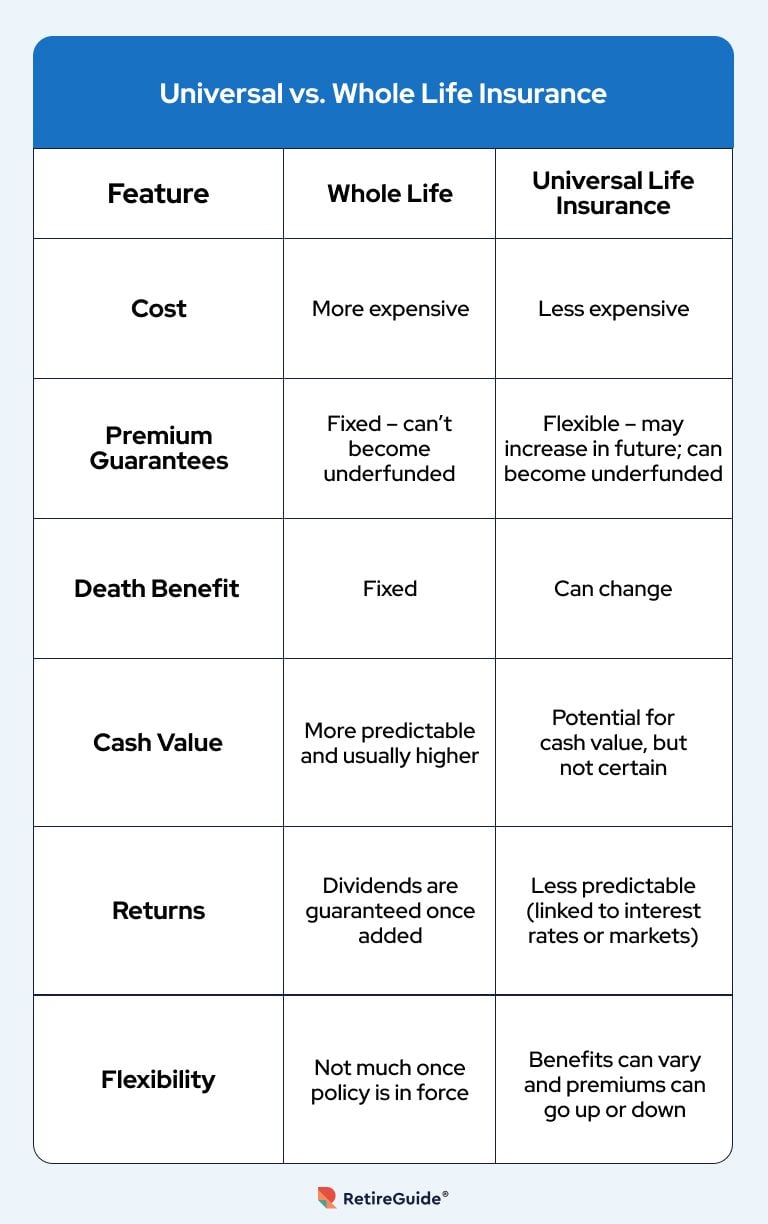Click Info Track: Your Daily Dose of Insights
Stay updated with the latest trends and information across various topics.
Whole Life Insurance: The Safety Net That's More Than Just a Policy
Discover why whole life insurance is the ultimate safety net that offers security and benefits beyond just a policy—learn more now!
Understanding Whole Life Insurance: Key Benefits Explained
Whole life insurance is a type of permanent life insurance that provides coverage for the insured's entire lifetime, as long as premiums are paid. One of the key benefits of whole life insurance is its ability to accumulate cash value over time. This cash value grows at a guaranteed rate, allowing policyholders to borrow against it or withdraw funds as needed. Additionally, the premiums are generally fixed, ensuring that policyholders will not face any unexpected increases, making it a stable financial product that can aid in long-term financial planning.
Another significant advantage of whole life insurance is the guaranteed death benefit, which is paid out to beneficiaries upon the policyholder's death, regardless of when it occurs. This feature offers peace of mind for both the insured and their loved ones, knowing that financial support will be available in times of need. Furthermore, the dividends earned on whole life policies can provide an additional source of income, which can be used for retirement or reinvested to enhance the policy's cash value, making it a versatile option for individuals looking to secure their financial future.

How Whole Life Insurance Acts as a Financial Safety Net
Whole life insurance serves as a valuable financial safety net by providing guaranteed coverage for the entirety of the policyholder's life. Unlike term life insurance, which only pays out if the insured passes away within a specified period, whole life insurance accumulates cash value over time, acting as a savings component. This accumulation allows policyholders to borrow against their policy or withdraw funds as needed, providing liquidity in times of financial strain. Moreover, the death benefit can be used to cover final expenses, debts, or provide financial support to loved ones, ensuring peace of mind for both the policyholder and their family.
In addition to its protective features, whole life insurance offers stability in an often unpredictable financial landscape. The premiums remain level throughout the policyholder's life, shielding them from potential future increases in coverage costs. This predictability empowers individuals to budget effectively, knowing their whole life insurance payouts can support retirement planning or serve as a legacy for future generations. Overall, investing in whole life insurance is not just about death benefit security; it is a proactive step towards fostering a robust financial foundation.
Is Whole Life Insurance Right for You? Top Questions Answered
When considering whether whole life insurance is right for you, it's essential to evaluate your financial goals and needs. Whole life insurance provides lifelong coverage and includes a cash value component that grows over time. This feature may appeal to individuals looking for a stable investment option that also offers a death benefit for their beneficiaries. However, these policies typically come with higher premiums compared to term life insurance, which might not be suitable for everyone.
Here are some top questions to ask yourself when deciding on whole life insurance:
- What are my long-term financial goals?
- Can I afford the higher premiums associated with whole life policies?
- How does the cash value component fit into my overall financial plan?
- Am I looking for a policy that provides both coverage and an investment growth opportunity?
By answering these questions, you can better determine if whole life insurance aligns with your financial strategy and future aspirations.